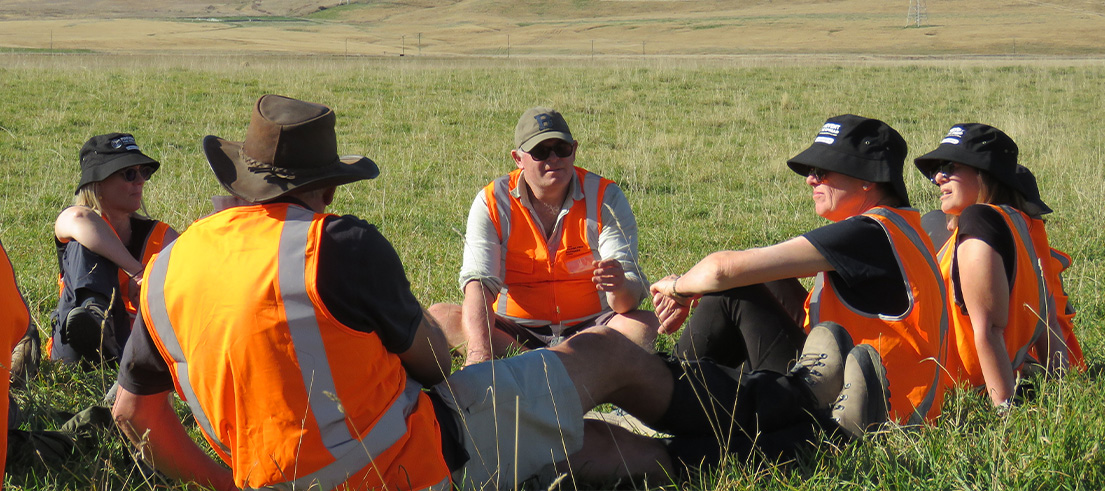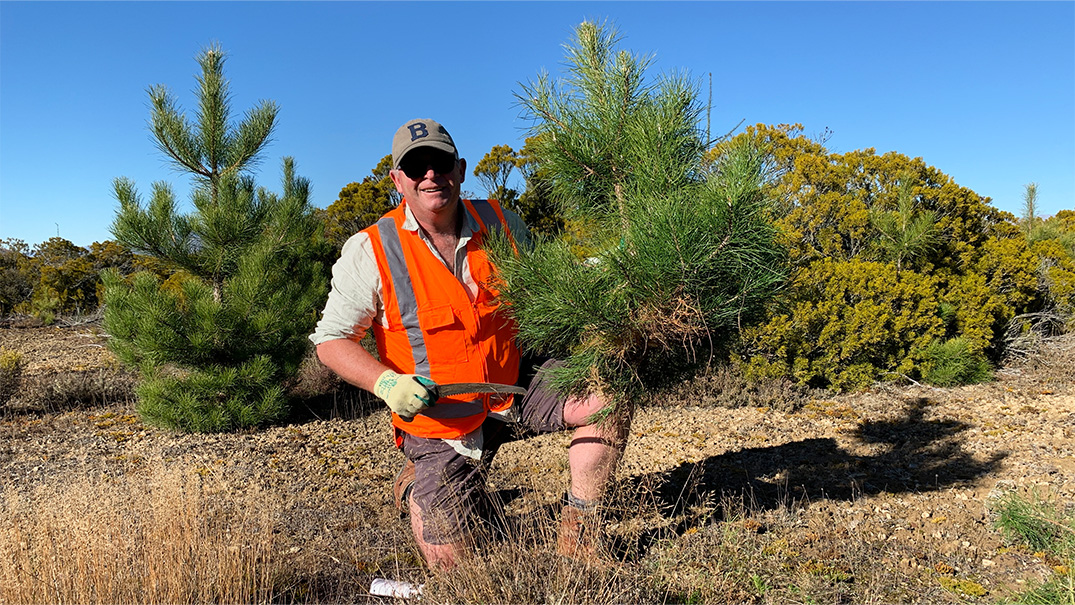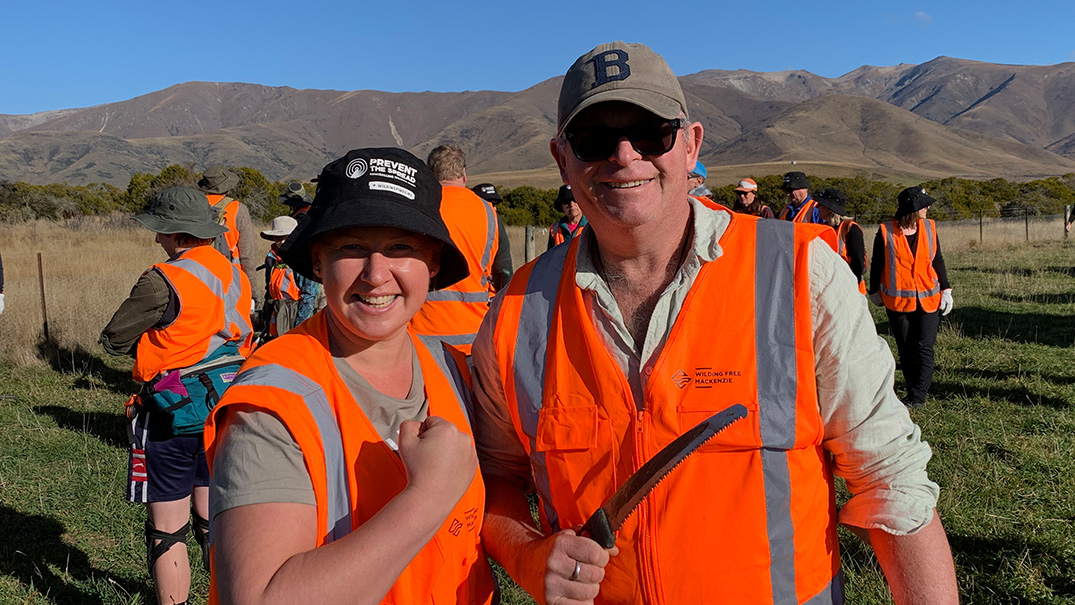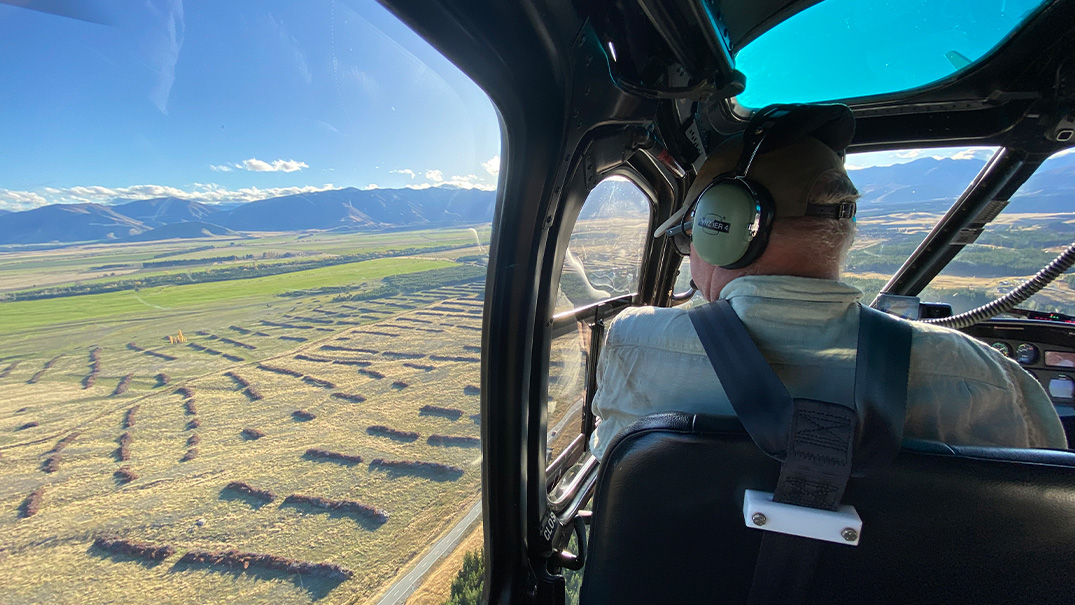
Al Brown takes on pest pines in the Mackenzie Basin
The war on wilding pines is being fought by multiple agencies, community groups, landholders, and other good people across Aotearoa and they came out in force to clear pest pines from an environmentally significant site on Ben Dhu Station near Ōmarama.
Around forty people attended a volunteer wilding pine day organised by Wilding Free Mackenzie Trust, among them was internationally regarded chef, restauranteur and entrepreneur Al Brown.
"I simply adore this country of ours, and to spend a couple of days with good people doing good things to help protect such a unique landscape that is the Mackenzie Basin was a privilege."
Raising the profile of the wilding pine problem
Al joins other well-known kiwis who are passionate about protecting our iconic landscapes from pest pines, including actor Sam Neill and artist Grahame Sydney.
Event organiser Haeleigh Turner is grateful for the awareness and financial support Al brings to the cause.
"The biggest challenge for us is trying to 'mainstream' wilding pine issues so they are as well understood as things like possums and COVID-19. When the negative impacts of wilding pines are well understood the National Wilding Conifer Control Programme is better supported, and landowners are more inclined to be proactive about removing wilding pines from their properties." she said.
In 2021, in partnership with Constellation Brands, Al launched Tipping Point Wines. Each variety in the range supports a different environmental charity — sales of the Woodsman Pinot Noir go toward an annual donation to Wilding Free Mackenzie Trust.
Scale and solutions
Al joined us and staff from the Trust in a post-event helicopter flight to survey the problem from above.
"It was extraordinary and very sobering to witness the scale of it all from the air. The saying 'a picture says a thousand words' couldn’t be more appropriate in this wilding pine infestation, and that is just in the Mackenzie Basin.
"It was incredibly useful to understand and witness first-hand, not just the size of the problem, but to see the multiple methods for ridding the landscape of these invasive weeds: spray, the use of stock, burning, even dealing with the slash after some of the forest areas have been felled," he said.
Reaching a tipping point
The National Wilding Conifer Control Programme has been the recipient of a significant funding injection via the Government’s Job for Nature Programme over the past four years. This allowed our control programme to scale up significantly and make great progress across Waitaha Canterbury.
From 2024, funding will reduce to $10 million across the country, so a strategic and prioritised approach is being worked on. It will also mean the efforts of landholders and community groups will be more important than ever.
Our biosecurity manager Carl Diamond is realistic about the challenges ahead.
"The reality is no matter how well your strategy is put together or your priorities are laid out, we do not have enough funding to deliver what is required to stop us from losing some of the ground we have made to date. Any ground lost will cost more money in the future, just like compounding interest on a loan with no payments — eventually, somebody will have to pay. This is why it is so important that everybody pitches in today."
Get involved
Anyone can join us in the fight against these invasive pests. Here are some practical ways to get involved:
- Join one of the fantastic community groups and help tackle the wilding pine problem locally.
- Remove wilding pine seedlings on your own or public land. Pull them out of the ground or cut small trees close to the ground — they can be left on-site to break down naturally.
- Replace pest trees on your property with native plants or less spread-prone exotic species. Check out the right tree for your place guide for inspiration.
- Work with neighbours to control wilding pines that have spread across property boundaries.
- Businesses can sponsor community projects, take part in volunteer days, and help spread the word.
Learn more about why these wildings are a problem and what we’re doing about it.



